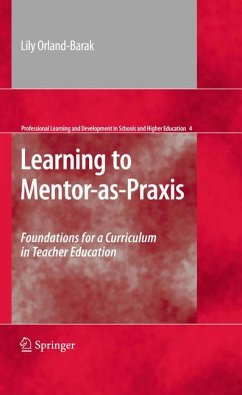Lily Orland-Barak offers us a breathtaking work of science ?ction. Or perhaps I should say 'science and ?ction. ' The science side of the equation employs sophisticated technique for observing and describing interpersonal and intrapersonal dynamics among professionals in education. Both dramatic and seemingly ordinary episodes in the lives of teachers in relational tension with one another are analyzed with scienti?c care, precision, and insight. The scienti?c study of mentoring is like the scienti?c study of soap bubbles - their formation, growth, and sudden exit from the visible world with a nearly soundless 'pop!' Scienti?c and intellectual tools can be used to describe and predict the behavior of soap bubbles, to study their colors, shapes, surface tension, and tiny mass. The same is true of the study of mentoring. But in both cases, the greatest care must be taken to avoid popping the almost m- ically elegant form - to avoid destroying the delicate relationship by rushing in, by heavy attempts at control, or by premature dissection, or even by paying attention too intensely to a private, personal relationship. Mentoring is best studied by being still, by listening with authentic interest, and by using our peripheral vision. The science and the scientist have done their best work here. The ?ction side of this ?ne book gives life to telling examples of mentoring in action.
Dieser Download kann aus rechtlichen Gründen nur mit Rechnungsadresse in A, B, BG, CY, CZ, D, DK, EW, E, FIN, F, GR, HR, H, IRL, I, LT, L, LR, M, NL, PL, P, R, S, SLO, SK ausgeliefert werden.









